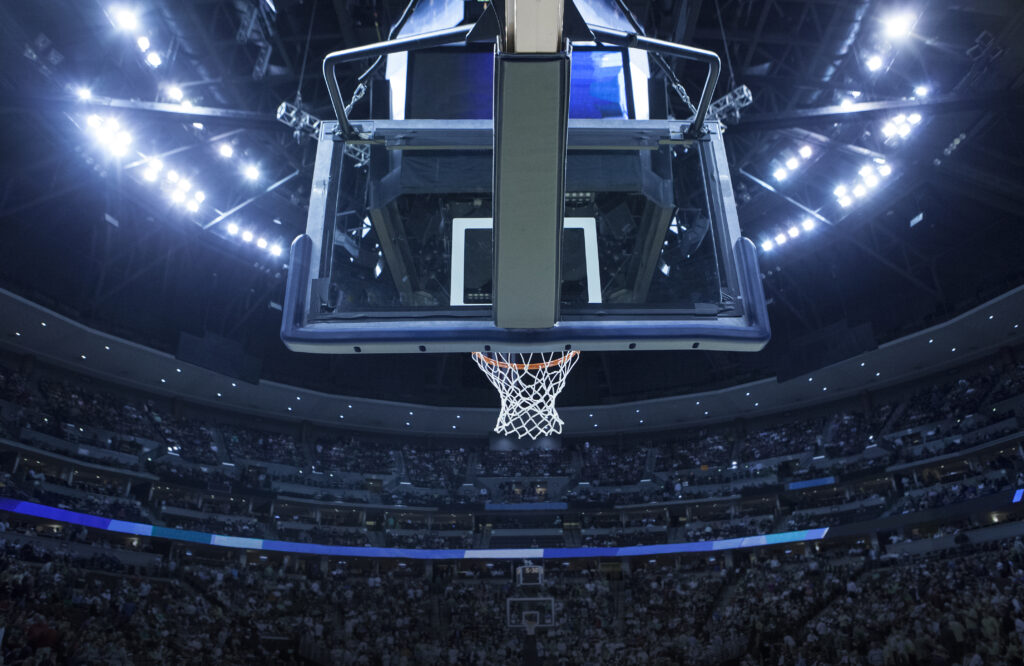September 1, 2019 is a date that will go down in local history, or at least in the version of local history that’s observed at the Marc Lopez Law Firm. This was the date on which the state of Indiana legalized sports betting and thereby made pretty much all athletic events potentially more exciting to watch.

The original plan was to legalize in-person wagering, but after further consideration, the Indiana Senate concluded that a prohibition on mobile betting apps would be unreasonable. As a result, Hoosiers are now able to gamble on sports—both amateur and professional—either in a live casino setting or remotely from a mobile device.
Over the past year and change, establishments like Harrah’s Hoosier Park, Indiana Grand, and Winner’s Circle in downtown Indianapolis have seen a major uptick in both patronage and gambling. Each of these locations now offers what’s known as a sportsbook, which is a place where gamblers can bet on a wide variety of competitive events.
Believe it or not, gambling is still illegal in Indiana.
It’s worth noting that Indiana’s old gambling laws remain in place. Gambling is statutorily defined as “risking money or other property for gain, contingent in whole or in part upon lot, chance, or the operation of a gambling device.” Unlawful gambling—that is, intentional gambling—still starts as a Class B misdemeanor, which carries a maximum penalty of 180 days in jail and a $1,000 fine.
The only thing that’s changed is that certain establishments have been granted a certificate of authority that allows them to conduct sports wagering. Risking your money on games of chance is still illegal—it’s just that now there’s a huge exception to this rule. While a March Madness office betting pool is technically against the law, making those same predictions with an authorized sportsbook cannot get you in trouble.
At this point, it’s fair to say that the only unlawful gambling in Indiana is unauthorized gambling. This shift has provided a certain peace of mind to almost all participants, because it removes the question of whether the gambling is criminal. If you’re at an authorized establishment (or using an authorized mobile app), you’re good to go.
Not everyone is enthusiastic about betting on amateur athletics.
Unfortunately, this distinction doesn’t take into account that other institutions might have an interest in discouraging sports betting. Purdue University, for example, announced a sports wagering policy that prohibits all students, staff, faculty and contractors from betting “on any Purdue team, student-athlete, coach, statistical occurrence, contest or event.” This policy specifically includes bets that are otherwise legal in Indiana.
Policies like these are concerned with fair and honest competition. Schools like Purdue are also trying to insulate student-athletes from the pressures that follow big money. When there’s a large enough reward to be had, certain parties might be bold enough to risk direct intervention in order manipulate the outcome.
Current students can face disciplinary action, including suspension, loss of a semester, or—in the worst-case scenario—expulsion. Faculty or staff might be looking at termination.
History has lessons to teach us about the intersection of gambling and sports.
The most infamous example of outside interference in sports is arguably the 1919 World Series, where a New York gangster allegedly fixed the outcome by compromising a number of White Sox players. It was a pretty big deal, and they even made a movie about it in the 1980s.
The zero-tolerance rules established by Major League Baseball in the wake of the Black Sox scandal are the same ones that Pete Rose fell afoul of when his gambling habit got out of control. Rose was banned from baseball for life, and he ultimately admitted to betting on Cincinnati Reds games that he’d participated in as both a player and a manager.
These are the sorts of scenarios that Purdue and other like-minded schools are trying to avoid for their student-athletes, who are starting from a more vulnerable position than professionals. The more that’s riding on amateur competitions, the more incentive there is for shady characters to try and affect the end result.
What does the law say?
Here’s an important thing to remember about the law: It doesn’t usually consist of any one thing. In many cases, there are different laws in different states. Sometimes there are even different laws in the same state, as in Indiana, where authorized sports betting is legal, but unauthorized gambling is not.
Beyond that, some institutions (like Purdue) have rules that are more restrictive than State laws. If this seems unfair, keep in mind that the Supreme Court of the United States has held that the act of gambling “implicates no constitutionally protected right.”
Purdue may have been ahead of the curve, but it’s not the only place where people are taking a serious look at the propriety of betting on amateur athletics. For example, University of Pittsburgh Athletic Director Heather Lyke has openly spoken against gambling on college athletics, predicting a “corrosive and detrimental” impact on student-athletes. At the other end of the spectrum, we have the University of Colorado, which is now officially in bed with PointsBet.
At the State level, Illinois has made it illegal to place bets involving in-state colleges and universities. New Jersey is currently in the same boat, but it’s looking to change its laws to allow betting on amateur games. In short, the law is all over the place.
We’re in uncharted territory.
If you or someone you love is enrolled at or employed by Purdue University, you owe it to yourself to understand the new sports wagering policy. The last thing the attorneys at the Marc Lopez Law Firm want to see is someone get kicked out of school over a silly decision.
If you’re facing a university disciplinary hearing—or if you’d like to make sure you never will—call the Marc Lopez Law Firm at 317-632-3642, and remember—always plead the 5th!



